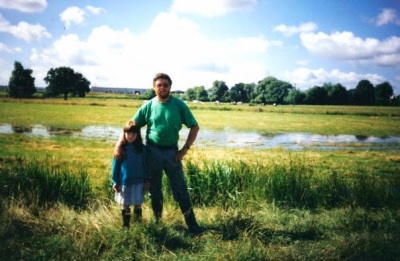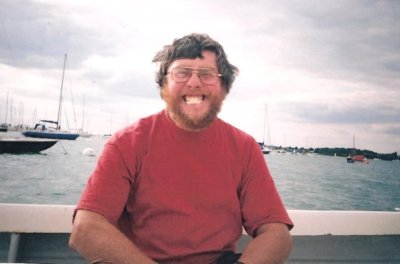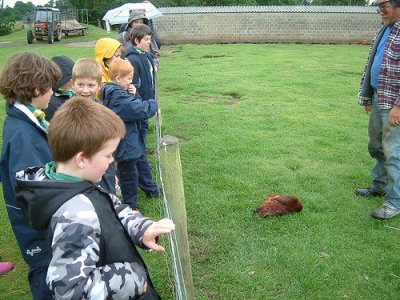Six years ago today I was sitting in my best friend’s bedroom when the police called round to confirm that my dad had swallowed rat poison and was declared dead at the scene. I cried for about an hour, and another the next day. Then that was it.
At school, friends and teachers gave me cards, hugs, free passes to get out of class whenever I needed. I didn’t miss a single minute of class. Not because I was being brave or strong. Simply because I was prepared. See, when you grow up with a suicidal parent all your life, you know the risks. It’s like having your very own personal ticking time bomb; there’s only so many times you can defuse them – one day they might just blow.
 |
| Being a daddy’s girl in matching shirts |
How many of us have been guilty of playing happy families, smiling in front of friends, framing our laughing faces on the wall when behind closed doors hide rows, abuse, depression, financial worries? It’s cliche that every family has its secrets. My dad was the most charismatic, dynamic, passionate man I have ever known. On the farm (the family business) he was a massive hit with all the children who couldn’t wait for the weekend to come down and help out ‘Farmer Bob’. Our kitchen table was always overflowing with piles of letters and drawings the children sent him. When Foot and Mouth struck and we appealed for help one boy donated a whole month of his pocket money.
A visitor turned to me once and asked: “Is he always this happy?”
“He pretends to be.”
“He tends to be…” She repeated. I didn’t have the heart to correct her.
Yet, this spirited appearance couldn’t have been further from the truth.
It was a biting cold November night – the perfect setting for a horror movie. Since we lived in an old victorian house the wind howled through the cracks in the windows and the splatter of rain would echo throughout the house. Tucked up safely in bed I was reading Harry Potter with my mountain of teddy bears. I was six, maybe seven.
Old houses don’t have great foundations and slowly but surely our house was tilting. This (or maybe a nosy poltergeist) caused my bedroom door to insidiously creep open from time to time when I didn’t close it properly. So when my door edged open merely a crack I thought it was one of those instances and didn’t bother to look up until Bob was looming right over my bed.
Bob usually walked briskly, with a sturdy purposeful stride. It would have only taken him a second to cross the room but unless there were some wizard-like time distortions occurring he must have taken the best part of a minute. An expressive man, apt to gesticulating, his hands lay limp by his sides. His eyes were glass. Before he even spoke, I was scared.
He sat down on the corner of my bed, crushing Big Teddy With The Green Bow but he didn’t reposition himself.
“Bobby-Jo. I love you. You and your mother are the only reasons I have for living but I can’t go on any longer.”
The tears ran then but I wasn’t shocked – it wasn’t the first time and it wouldn’t be the last.
 |
| happier times – on a boating adventure |
There is only so much a six year old can do to stop a full grown man. A few times I had clung to him like a limpet, physically refusing to let him go. Ultimately being extricated so clinically like a tick by your own father is too painful and I knew he would win so I let him walk away. I went to fetch mum and we picked up our torches and scoured the farm for hours to find him to no avail.
Doing this had become a habit, once each month or so, almost like a twisted family tradition, a game. Instead of Where’s Wally it was Where’s Bob And How Will He Hurt Himself which is infinitely less fun to play. Sometimes we would be up all night searching for him, soothing him, calling the police or the ambulance services, wrapping him in a blanket and putting him back to bed like he was the child whilst I would skip off to school the next day and pretend nothing happened.
He came back later that night with a red line around his neck. We sighed with relief. The immediate danger was over (until next time). He said he had tried to hang himself but his neck was too strong – it didn’t work. That was Bob all over – there was something so indestructible about him even when he was so utterly broken.
Sometimes I think it was a miracle that we kept him alive for fifteen years but then other times I see how strong willed he was and it seems less miraculous that he superglued himself back together from the brink on so many occasions. He was a fix-it-yourself kind of guy – he could patch up my bike tyres in record time, run a soay sheep down the the ground (they were these crazy-wild sheep that could run up to 40mph (we raced them in the car once) and leap over anything). If I was stuck on my homework he always explained things so well and taught me all the science I learnt in primary school before I even opened a textbook. I guess he was such a perfectionist that that one sentence explanation would just not do.
This is the paradox of the mentally ill: often the qualities that predispose them to suffer also foster greatness. Bob was something of a local celebrity, appearing on the radio, receiving fan mail… I was perpetually known as The Farmer’s Daughter and very often strangers would knew who I was because of him.
He once applied to be a TV presenter for the agricultural programme Countryfile. The producer went for someone younger but I have no doubt that if he had got the role he would have been an instant success. He had the energy, the passion, the vision of a star. Chances are you know someone like this too, with incredible potential but held back by their mind despite their genius.
Because everyone is more than their depression – something that we can often forget when we are in it ourselves, but that we never cease to notice in others. My dad had incredible courage to pick himself off the floor despite our financial worries, working himself into the ground every day on the understaffed farm, fighting legal battles with three huge organisations. He had a tough childhood caught between his two parents – his ballsy mother and alcoholic cheating father and a tough adulthood. He wasn’t perfect and we clashed sometimes. He was riddled with faults, like any of us, but you can’t deny he had strength. To feel so much pain life is unbearable, to reach the point where death is preferable and come back from the brink over and over again for at least the fifteen years I knew him – not many people could do that. Suicide is not a sign of weakness, it is a sign of trying to be strong for too long.
So I don’t view my father’s death as a failure, an inadequacy, a weakness. I view his years of life as a display of that incredible strength. If you are lucky enough to have such an inspiring person as Bob in your life but unfortunate enough that they are struggling, remind them daily of their positive attributes. Love them with patience and perseverance. Remind them who they were at their greatest moments, in happier times. If you have lost such a person to suicide already remind yourself of those moments. Free yourself from blame – suicide is a personal choice and if you could have helped, you would have. Unfortunately there is this impermeable barrier between my thoughts and your thoughts that means we can’t know everything, heal everyone, do everything right. Let go of the responsibility of your loved one’s death because it is not your fault. If the suicide was unexpected, you may think you should have read the signs. If like me, it was anticipated, you may think there was more you could have done to get help for the person. None of these thoughts are constructive to your wellbeing. You wouldn’t blame yourself for causing someone’s cancer or heart disease and this is the same. They had a clinically recognised condition, and unfortunately it wasn’t treated successfully. The person made a decision – learn to be responsible for your own decisions and that is all you can ever hope to do in life. Other people’s choices will always be out of our control. With time you will find a way to turn your what if’s to what nows and move forward. That is what your loved one would have wanted. Often people take their lives because they feel they are not wanted or needed – my dad insisted “You’ll be fine without me” -he didn’t see clearly what he had to offer me or think his life had value worth saving but he had no doubts I would cope without his help!
The ones we love bring so much to our lives. Honour that in whatever way you can – gravitate back towards the positivity rather than feeding the circle of negativity you wish to free them from. I certainly don’t intend to ever think of Bob as a one dimensional person, a ‘broken man’ – he wasn’t. And if you have a loved one with depression, nor are they.
My one hope for this is post is that it has encouraged you to love a little deeper, to be grateful for your blessings and never take something as precious as the loved ones in our life for granted. And if you have lost someone to suicide know there is hope for the future. The sadness will evaporate like ice in the spring until one day you can be grateful for the gift of your person who showed you the value of making the most of what the present blesses us with.

Thank you so much for sharing this Fran! So many people go through similar experiences, clinical depression is so horrible and very real to the person experiencing it so thank you for adding to the voices that are telling the world that though it is serious, it is also common and treatable and we shouldn't be stigmatised for experiencing a medically recognised condition. So glad the world still has you! You're the best ❤
LikeLiked by 1 person
……..This account that you've written provides a great insight in to the viewpoints of both a young family member and also how it can feel for the affected. The condition is very real and I thank you for writing so intimately about it. The more I read about people suffering, the more I learn that the way my mind works isn't completely weird. That I'm not alone in this. I'm not an outlier making this all up, it's not exaggeration, it is happening to me. But I also know that people have it much worse than me. Always support those you love, show compassion to everyone, you never know who is unwell. I put on a brave face for years, still no one believes I am down or have had suicidal thoughts, I don't talk about it with anyone because I have never had the right support growing up and don't believe people care or even want to hear about it.
Again thank you, you are one tough cookie and an inspiration to us all! I love your posts, the detail and realist touch you have is amazing and intriguing.
LikeLiked by 1 person
At first I had no words for this post. It is spoken with complete honesty and reveals even the deepest thoughts. The admiration you have for your father is heart-warming and he deserves it. Suicidal thoughts are extremely difficult to live with, they overwhelm you and can end a person's journey.
I remember when I was feeling happy for once and then out of nowhere: 'You're worthless. A waste of space. Kill yourself.'. I did all I could to try and ignore these thoughts; blank my mind, take a breath, think of something I loved, but they were strong and would appear in my mind not only as speech but as an image. I am too afraid of death and pain and have managed to overcome these urges, seeing a train or a bus and thinking 'It could all be over. Quick and easy. Do it.' But I never succumbed. The thought that I'll be in pain when I die, the idea that I may live with repercussions like organ failure or paralysis and the thought of my family having to deal with my 'selfish' death has kept me from attempting. Although I did look at legal euthanasia as a way out, but I was putting conscious thought into it so was not fully gone yet. The worst I had was feeling so uncomfortable in my skin, as though I had a wetsuit on in some hot humid temperature, I wanted to scream as if I was in pain and scratch my skin off. It was at that point that I realised I couldn't battle this on my own so I went to the doctors immediately. I was given happy pills and a therapist instantly. They helped in the short term but I still get relapses. I have Diabetes and was Hyper the entire time, these levels can make you further depressed. You then feel horrible for being so ill all the time and that lowers your mood, the cycle was never-ending. I agree it doesn't show a weakness, I know because I am too chicken to try, and it does instead show that they are physically and mentally tired of challenging these thoughts and feelings.
I didn't have support at that time anywhere in my life. I was alone apart from a long-term boyfriend who did not understand the word 'support' or 'compromise'. I felt totally alienated from the world. Support means the world and I know that now, with my family back around me and giving me help instead of bullying me and being single and able to think purely about myself (though I get happiness from spoiling others) I am still being told by my family that it's all in my head, I was just stressed, I was not depressed. Yet I scored almost 100% on everything on the doctor's tests and was cased as clinically depressed to the point they appointed a doctor to call me every day. I have moved on to a good treatment and Diabetes doesn't affect my mental health so much now. Though I still have these thoughts sometimes, I have learnt ways to deal with it. For me it's becoming obsessed with a hobby, distracting myself as much as I can before I become lethargic and zombie-like, staring at a spot on the wall for weeks at a time without realising it and wishing I could just die.
….Continued….
LikeLiked by 1 person